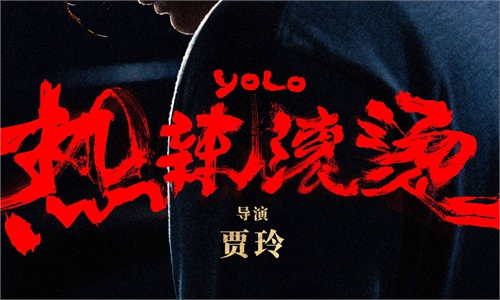
Photo: Courtesy of movie Pegasus 2
This weekend, millions are on the move in China as the country celebrates the Spring Festival. Many people are heading home to reunite with friends and family, and some are going on vacations. Many too, are flocking to the cinema to enjoy with the feast of new films during the festive season. It is well known that cinema and Spring Festival go together like dried plums and coconut juice. This year, however, there is something different happening in China's movie theatres.Back in 2012, seven of the top ten most popular films in China came from Hollywood. Last year, not a single US blockbuster of any description broke into the elite list of the ten highest-grossing movies in China. Over the same period, the film market generated 55 billion yuan at the box office, 83.77 percent of which was provided by domestically-produced films. These takings were a four-year peak. By contrast, the total Chinese market for foreign movies was worth just eight billion yuan. China seems to have fallen out of love with Tinseltown.
The New York-based cultural and current affairs magazine Vanity Fair described 2023 as "The year that broke Hollywood" as the industry struggled with strikes, sackings and shrunken budgets. It said the American film business "has lost its sense of direction." The problem lies in product quality. A lack of originality and too much reliance on sequels, superheroes and remakes, leaves audiences bored. US movie producers are renowned for focusing on the bottom line, often to the detriment of quality, as they will play it safe with familiar genres and not take risks to explore the new. This obsession with commercial success may have blinded them to the fact that, in what used to be one of their biggest markets, their products have lost their appeal. Last year the movies Barbie and Oppenheimer were big successes in the West, but failed to make the top 30 releases in China. Even America's revered show business publication Variety sees what the issue is - it says US blockbusters have been setting a trend of "dismal flops" in China because "Chinese audiences have seemingly moved on from American franchises. "
What Hollywood's executives have failed to detect is a change in the tastes of the Chinese audience. People have become tired of such movies not only because they are too similar, but also because of their content, which overwhelmingly promotes a US-centric worldview. Movies in which contemporary geopolitical rivals are usually portrayed as two-dimensional, unsympathetic bad guys, are so last century.
Yang Xindi, a researcher from the Beijing Film Academy, recently told Xinhua: "As China's domestic films have more diverse subjects and more distinct genres, with the overall development of film industrialization, they are obviously becoming more attractive to the Chinese audience." Zhi Feina, a professor at the Chinese National Academy of Arts, told China Daily that the decline in Hollywood's appeal in China is also due to its "neglect" of cinema-goers' sense of identity. Common sense dictates that audiences are attracted by something with which they can identify.
The fact is the Chinese audience is turning its back on American movies and now domestically-produced movies are the preferred choice. The nine offerings released during this year's festival have been a treat. This is all good news for China's surging film industry. One of its production leaders, Maoyan Entertainment, has already announced plans for 40 films this year - including the comedy Pegasus 2, which is one of eight movies opening on the first day of the holiday. There is a wide range of genres from which audiences can choose: action, suspense, comedy, animation, and romance. The hugely successful Boonie Bears franchise has released its tenth offering, Boonie Bears: Time Twist. Those who enjoy crime dramas might prefer Article 20, directed by Zhang Yimou. On February 16, the thriller Break War, set in China's Hong Kong SAR, will also be released.
Chinese cinema, like China itself, is growing in confidence and increasingly taking pride in what it has to offer. It is also interested in sharing what it has with the rest of the world. Perhaps one day even Americans will tire of Hollywood and look towards China. At last year's Beijing International Film Festival, Zhang Yimou spoke passionately about Chinese cinema industry and its cultural potential, not just in China but around the world.
He said: "Chinese culture, Chinese works and Chinese idealism should have an influence on the whole world, to appeal to the whole world, to be shown to the whole world. I hope there is a day like that. And when that day comes, we will be able to say that Chinese films are influential, because they have made a contribution to humans and toward a better world".
Personally, I would definitely buy a ticket to see that show.
The author is a journalist and lecturer in Britain. opinion@globaltimes.com.cn



